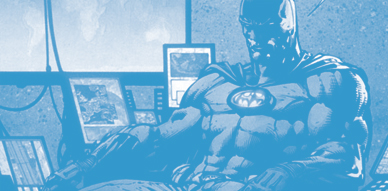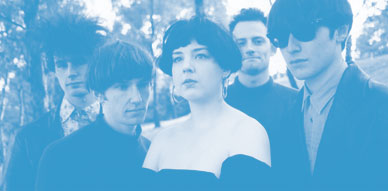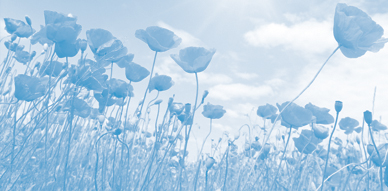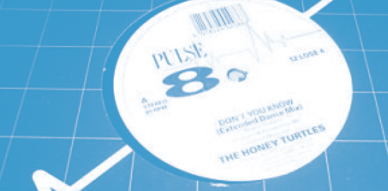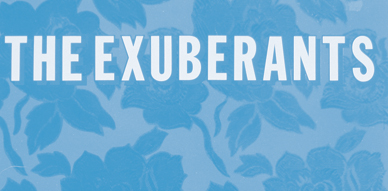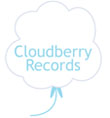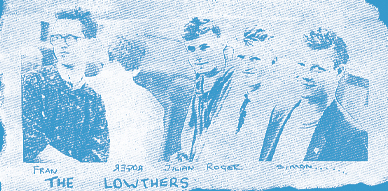
Thanks so much to Fran Wright for this interview. Some years ago I interviewed Simon from The Lowthers, and some weeks ago I was contacted by Fran. I thought it would be very cool to hear his own perspective of the Lowthers’ story as a band, and his own Manchester. I hope you enjoy it!
++ Hi Fran, thanks a lot for the interview. In the past I chatted with Simon from the band, it’s cool to hear now from you and from your perspective the story of The Lowthers. So let’s start from the beginning. You were in a band called The Pop Stars. Tell me a bit about them. Any recordings?
The Pop Stars was the band that Simon and I originally intended to form back in Sale. We had a lot to learn about the nuts and bolts of making music but from the beginning we were very good songwriters and we knew it. We both played guitar and sang and our intention was to find a bass player and drummer and to be a 2 guitar, bass, drums four piece with us both singing our own songs. We demoed a few early songs as duets but the only possibly surviving recording I’m aware of was a cassette that was a joke Christmas album that we recorded on Simon’s old piano. It amused us at the time.
++ How was Manchester back then? What were the bands you liked in town? And where did you usually hang out?
In those days the city was a bit grim, nothing like it is today. Simon and I spent more time in the pubs of Sale talking about music than we did exploring what other bands were doing in the city centre. In terms of playing live we played at the Boardwalk more than anywhere else. Actually there were a lot of bands who weren’t very indie at all but when the Madchester thing started they adapted and gave the industry what they were looking for. You still had to search out the alternative scene, though, and a lot of our friends were goths. The vast majority of the nightlife in Manchester was still all about plastic, mainstream music, and as people say, the only thing that was 24 hour was the Spar.
Apart from the Smiths I was really, into James who I first saw supporting the Smiths at the Palace Theatre on the Meat is Murder tour, and I saw them loads of times in Manchester. They were very indie at that point and they played live a lot around Manchester. I’m proud to say that I went to a free festival at Platt’s Fields where James were 2nd on the bill behind Simply Red and I left as soon as I’d seen James. They were on a double bill with the Stone Roses in an anti-clause 28* benefit gig and they were so incredible I went home and wrote ‘What For?’ all over my body in indelible marker. The Stone Roses (who hadn’t quite broken through) were rather ordinary that night, I thought.
++ Do you remember how The Lowthers came to be?
Simon met Roger studying art in Salford, he had a band called Of That Ilk that he had formed with Rick, a guitarist who was leaving Manchester and so Of That Ilk slowly dissolved and got merged with The Pop Stars to form The Lowthers. By the end of the process Simon was the sole singer and I was the sole guitarist, with Julian, who had been in Of That Ilk, on bass and Roger on drums. Julian left after a while and was replaced by Brendan Bell who Simon and I knew from Altrincham (he now lives in West Virginia, USA). Brendan’s a very decent musician and, musically speaking that was the best period of the band for me.
Roger also wrote songs and so we were unusual in that we were a four piece band that had three songwriters, all of whom wrote songs good enough to form a band around. It was good in that it meant we were overflowing with material, even when we were finding our feet musically, but I suppose that it caused some tensions as well. I would have preferred for us to have two guitars and for Simon, Roger and I to sing our own songs and I don’t really know why I never suggested that.
++ Simon told me no one was interested in releasing a record for you. Why do you think that was?
Island Records said ‘we like the Smiths too but we can’t make a living out of it’. A woman from Playtime Records said ‘You sound too like the Smiths’, I said ‘we sound much more like James than The Smiths’ and she said ‘James sound like The Smiths’, so it was no win really. It was like a Sitar player being told he sounded too like Ravi Shankar by someone who knows squat about Indian classical music.
We loved the Smiths and we were influenced by them but I always thought we were more influenced by James (circa Stutter and Strip Mine) and The Wedding Present (circa George Best). Simon recently told me that he can’t stand the Wedding Present which shocked me I must say. And Sylvia didn’t really represent our sound. I’m proud of the song but the recording was a bit rushed, we just went into the studio and did what the engineer told us. It had a very Marresque guitar line but the vocal phrasing was totally unlike anything that Morrissey would ever do, but I can see how some people perceived us through that one record despite sending them demo tapes and playing live where we had a much rougher and more energetic sound.
With hindsight I think we expected things to happen too quickly. We weren’t together that long and towards the end we were getting much tighter and developing our own sound more and more, but the exposure that came from the Disparate Cogscienti was perhaps a bit too soon for us, and the demos we sent out were very amateur.
++ You recorded a bunch of demos. I’m sure many would be interested in listening to them. How many demo tapes did you made and what was the tracklist?
For a time there were a lot of tapes floating about but the only one I have now is of us playing four songs in Brendan’s living room in Altrincham, not long before we split. It’s a crude recording but I think we sound pretty good in places. The songs on it are ‘Your Stare’, which I wrote, ‘Loyalty’, which Roger wrote, and one of Simon’s whose title I’ve forgotten but the chorus goes ‘I don’t care ‘cos I think you’re square, and you can take your money and stick it elsewhere’. There’s also a track that I wrote called ‘Kill Indie Pop’. (I really like Indie Pop, this was just a beef about people not doing it properly). I’ll send you a copy!
++ I’m not familiar with many of your songs, but I’m still curious to know which of your songs was your favourite and why?
Some of the songs I wrote for the Lowthers I wrote when I was 17/18 and so I’ve developed a lot since then, by the time I was in my mid 20s I’d learned to be more direct but I’m still proud of all the songs I wrote for the Lowthers and Simon and Roger were terrific songwriters. My favourite Simon song was ‘Look what the stalk brought’ and my favourite Roger song was called ‘Tell me to Jump’.
I think most fondly of the only two songs that Simon and I collaborated on, (the 3 songwriters nearly always wrote complete songs). There was one song called ‘The Turkeys Vote for Christmas’ that Simon wrote the words for and I wrote the music for and it had great lyrics and a souped up REM style riff that worked really well live. Another was called ‘Up Out and Away’, I wrote most of it but Simon came up with a verse and the title that really finished it off and brought it alive. That had a screaming delay pedal over the chorus and again, it was really good to play live.
++ The most known song perhaps is “Sylvia” that appeared on the “The Disparate Cogscienti” compilation that Mark E. Smith put together. What’s the story behind that song?
I wrote it when I was 18. Sylvia was my mother’s name and she died when I was eight, but it’s not about her as a person. I used the name Sylvia because it scanned and it evoked the 60s. It’s about the desire for a perfect love that will make everything right. When I reached adolescence the only preparation I had was my family’s rather Victorian worldview and I felt confused and bereft without a mother and I was trying to capture this desperate feeling in the song. The chorus goes ‘I’m saving myself for Sylvia’ but it’s not about celibacy or virginity as some reviews thought: it’s about clinging on to life, keeping yourself alive because of the idea that out there is a perfect love that will solve all your problems and finally make you happy.
++ And did you ever met or hanged out with Mark?
He turned up at the studio and it was pretty excruciating. We had virtually no studio experience, Roger and I were about to do a harmonised backing vocal on the chorus when the intercom went and Mark E Smith appeared on the other side of the glass. He immediately took charge and told the engineer what he wanted, and the engineer who was an ex teacher suddenly started showing off because a pop star had turned up. Roger and I probably would have struggled to do the backing vocal anyway but having Mark E Smith on the other side telling us where we were going wrong made sure we went to pieces and cocked it up royally. Simon stepped in and did it perfectly well in one take.
Roger used to mither him, which doesn’t really count as hanging out, and I think Brendan passed him a spliff at a dinner party but I’ve no idea how that came about.
++ What was the creative process for the band?
The Songwriter presented a song by singing it through with a guitar and we took it from there. Translating songs into an arrangement for guitar, bass, drums and vocals was something we sort of did together but I remember feeling that it was quite a burden for me to come up with guitar arrangements that weren’t just block chords through the whole thing cos at the time I liked to build it around riffs. It did my head in to be concentrating on the guitar so much because I always thought of myself as more of a songwriter than a musician. Roger was an excellent drummer with an unusually soft open hand style that he had learned from his Dad and we treated the drums like they were as important as the other instruments in forming the sound. When Brendan replaced Julian on bass I thought that musically we started to reach that point where the thing that happens collectively is more than the sum of its parts, but by then we were falling apart in other ways.
++ Simon mentioned that usually the reviews weren’t really favourable, do you agree with him?
It seemed then, and it probably still seems, that for magazines that see themselves as being on the cutting edge there’s no middle ground. Everything was either total genius or offensively pointless. The NME gave an All About Eve album 0 out of 10 and said ‘Wayne Hussey sings backing vocals and so is eternally damned by association.’ So given that, I didn’t think we did too badly. City Life, a Manchester magazine said nice things about us, it was just that the NME and Melody Maker damned us with faint praise which really felt awful. We were young and we thought that things might be happening for us really quickly and then it was dashed. But looking at it now I think if we had kept going we’d have picked up a lot more positive reviews. We thought we were outstanding and couldn’t understand why other people didn’t see that too. Obviously that was a bit immature.
++ What was your favourite music mag back then? Did you follow and read lots of fanzines too?
The NME was taken terribly seriously then and I used to go to Sale Library on Mondays and read it cover to cover. It was very funny, very political and I had no problem with its vicious tongue, it offended me that the charts and the radio were clogged up with shite and NME never held back in laying into stuff they didn’t like. Politically these were stark, frightening times, the Thatcher government was screwing the unions, laying waste to provincial towns and cities, and introducing homophobic legislation. The NME had contempt for musicians that had nothing to say about what was happening. I’ve just heard that it’s become a free paper which is sad, but it hasn’t been what it was for a long, long time now.
* Clause 28 was legislation the government was passing which forbade local authorities from ‘promoting homosexuality’. By the time it was passed it was called Section 28 but it was in place until the Labour government repealed it when it came into office in 1997. It was terrifying and there was a huge campaign against it.
++ During those mid and late 80s there were so many guitar pop bands. Did you feel part of a scene? And today, how would you prefer being categorized, indiepop or C86?
There always were guitar bands everywhere, the only difference was that suddenly journalists and A&R people moved their expense accounts into the city for a while and took notice of some of these bands. I do believe that musical and songwriting talent is fairly constant, it’s the industry that ebbs and flows. Apart from one support slot with My Bloody Valentine in York we only ever played in Manchester we were rarely on the same bill as bands that we felt any affinity with.
We slightly after the C86 scene so we didn’t feel part of that. I can’t speak for the rest of the band but I totally embrace the label ‘indie pop’. Punk had stripped away the pretentiousness and the needless complexity and indie pop removed the machismo. That was vital for me, it was about writing honestly about sexuality and what it was really like to be a young person. Unfortunately it came to be seen as just a gimmicky phase that bands went through before they could afford more expensive equipment and wanted to play stadiums. I’m so glad that people are taking it seriously as a genre once more, maybe it could become a long term form like Blues, Country or Reggae. I’ve moved on musically in that I’ve left the frenetic guitar sound behind but it’s still about an indie pop attitude: what Leonard Cohen called telling the truth about a song.
++ And where did you usually recorded your demos? Did you enjoy recording as much as gigging?
The band only went into the studio twice, which seems shocking now. Once to record Sylvia for the Disparate Cogscienti and once after I’d left. All our demos were either live recordings from the mixing desk or tape recordings in living rooms and they were pretty primitive. I didn’t learn anything about recording until after the Lowthers.
We usually practiced in Roger’s front room in Prestwich, and there’d be a mono tape recorder with a pair of Walkman headphones for a microphone. They sounded remarkably good considering, but it was naïve to submit the result to the Manchester Evening News who said it sounded like it had been recorded in a lake. Their demo of the week in the same issue was from The Inspiral Carpets. Obviously they were a lot more professional than us but I thought, and I still think that we were better than them.
++ Talking about gigs, what were your favourite gigs and why? And the worst?
My favourite gig was the last one, at the Boardwalk in Manchester. Brendan was in the band by then and we were starting to sound really abrasive and bright. We were playing ‘Turkeys Vote for Christmas’ and I noticed that people at the bar, behind the bar and around the place who hadn’t come to see us were getting into it. It’s a shame that we never built on that.
My worst one was probably the first one. Somehow Roger had got us on the bill at the International which was a very decent venue but the other bands were truly dreadful jazz/funk outfits. I had a hangover, there was only our friends down the front and a great big space behind them and we’d had a totally useless soundcheck. After the first song Simon turned to me and said (on the mic) ‘Fran, your sister’s here!’ as she walked across the cavernous space. We took ourselves seriously from the beginning because we felt so confident in our songs, but we had a quite bit to learn.
++ When and why did you split?
It was 1988 or 1989 and it was largely my fault. As the band became more polished musically Simon and I started to argue about music. I was never entirely comfortable with the way we lined up because originally we had both played guitar and sang, and with him doing just vocals and me doing just guitar I started to feel that I was doing more to bring his songs to life than I was getting in return. Simon had a very good voice for the songs he was writing but I thought that he wasn’t practicing and pushing himself to improve enough as much as the rest of the band and it was placing limits on what we could do musically. So I quit, and the band carried on for a few more weeks before calling it a day.
Simon and I were both headstrong but I was too demanding and we could have found a way forward. I thought that he was getting to concentrate on song writing without having to do any of the musical heavy lifting but it got tied up with personal issues I was going through – life was very hard for me away from the band and I started to expect too much from Simon as a musical partner and as a friend. I’d also say that, while I always appreciated Roger as a drummer I didn’t appreciate at the time the work he put into getting us bookings and sending out demos.
++ Are you still in touch with the rest of the band?
Simon and I gave each other the cold shoulder for a short while but we were soon friends again and we saw a lot of each other before I left Manchester to go to college to study drama in Yorkshire in 1990, and he was best man at my wedding in 1997.We’re still in touch but we don’t interact much to be honest which is a pity. I last saw Roger at Simon’s wedding and we’re not in touch but I’d be happy to see him again. Julian was a nice guy but we were never close and we lost touch when he left the band. I didn’t hear from Brendan for a long time until I found him on facebook. He’s moved to the USA and I was hugely impressed to hear that he goes ‘way back’ as they say with John Darnielle from the Mountain Goats.
++ Have you been involved with music after The Lowthers?
Sure, these days I record under the name Lokomotiv Stockport which is the format I’ve used for the last fifteen years or so. Prior to that I formed a short lived college band in Yorkshire called Jason and the Lagernauts and then I went to South East London where I did quite a bit of playing live as a solo act and recording with a musician called Toby Deans under the name The Plum Corporation. But I must have angered the gods of music because when I was in my late twenties I started suffering from mysterious muscular skeletal issues that stopped me singing or playing guitar or piano for years and years. I’d already been diagnosed with depression which has been recurrent, and at times severe, so life was very hard for a while.
But in 2007 my health improved enough to I get into low budget home studio stuff and so I started recording lost songs under the Lokomotiv Stockport banner. I wanted to record a trilogy of ‘lost albums’ made up of all the songs that had been lost to illness, but I only managed to put out one album out in 2008 before my health dipped again. The album that made it was called ‘My Jangling Heart’ and was billed as ‘10 Songs about Romantic Pain and Incompetence – Sparkling Indie Pop from the North of England’
Mercifully I’ve now discovered medication that controls my symptoms enough to make music so I’ve put together another eight track album of songs from the Jason & the Lagernauts and the Plum years and I hope to get more out in the new future. I still write songs, but there are so many old songs waiting to be recorded that new material has to be really good to get a look in. I want to get to the point where all the old songs are out there and out of my system and I can concentrate on new material.
Actually, reminiscing about the Lowthers is tempting me to upload some acoustic versions of Lowthers songs so I might do that on the Lokmotiv Stockport Bandcamp page before too long.
Professionally I’m involved in music in that I’m now a piano tuner by profession.
++ Looking back in time, what would you say was the biggest highlight for you in The Lowthers?
In the beginning playing live was totally draining because of the nerves and the horrible feeling that it wasn’t coming out how we wanted it. But when we’d improved there were moments on stage and in rehearsal when it felt like we were producing a beautiful energy and it was expressing how we felt and that was a really great experience.
++ These days, aside from music, what hobbies do you have?
I’ve been a Barnsley FC season ticket holder for years but I’ve given up hoping that they are going to do anything glorious. I occasionally write plays but none of them have been produced beyond local amateur productions so far. My wife (Susan Elliot Wright) has become successful in the last few years as a novelist, and so she encourages me with the idea of writing prose fiction. During the long years when I couldn’t make music I really went to town on discovering new music and these days I’m hooked on music from Nigeria and Zimbabwe. I also got into studying theology which no one expected, least of all me. But music is still a massive part of my life, that and walking the dog.
++ Man U or City?
United. Sale is in between United and Altrincham, a non-league team, and I used to watch them too. But I’ve since a shameful thing and switched allegiance. In 1990 after moving to Yorkshire I started watching Barnsley FC. At that time United had just become a PLC and the last time I went to Old Trafford it was like having a box at the opera, so I’ve supported Barnsley since then but I have to say, it’s not for the faint hearted. And even though I no longer support United I still laugh at City and hate Liverpool.
++ Let’s wrap it here, anything else you’d like to add?
I’d just like to say how great it is that people are taking indie pop seriously again and that anyone who is interested in the British indie pop scene in the 80s should have a look at what was coming out of Zimbabwe at the same time, in particular artists like John Chibadura, the Four Brothers and Tryson Chimbetu and the Marxist Brothers. They’re incredible and there’s a massive indie pop overlap going on.You’ll be amazed.
::::::::::::::::::::::::::::::::::::::::::::::::::::::::::::::::::::::::::::::::::::::::::::::
Listen
The Lowthers – Sylvia
